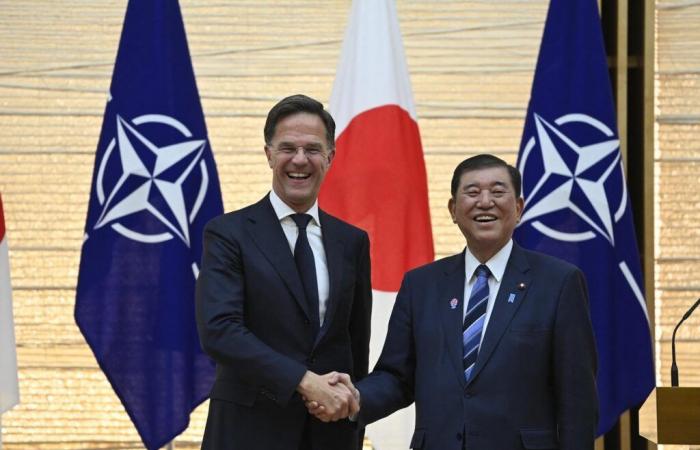DEtuis the announcement by Donald Trump of the “Liberation Day”, on April 2, and a massive increase in customs duties, Japan is faced with a difficult geopolitical and economic equation, especially for a country long favorable to diplomatic discretion. The rough announcements of the American president immediately resulted in a 9 % drop in the Tokyo Stock Exchange, the third largest dropout since 1945.
Follow our direct Live, customs duties: Wall Street ends the upward week
Read later
The concern is deep: the announced establishment of customs duties of 24 %, which are added to the 25 % specifically on vehicles, directly threatens the Japanese economy. The recent suspension by Donald Trump of his decision, for ninety days, can reassure temporarily, but it does not raise the uncertainty that weighs on the reliability of the United States, the first partner of the archipelago at all levels.
Automobile exports represented in 2024 almost 28.3 % of the country’s total exports. The expected commercial shock is therefore of considerable scale. Itsunori onodera, a senior official of the liberal democratic party (PLD) in power, warns that this “Will cause a huge problem” Due to the structuring role of the automotive industry and its thousands of subcontractors throughout the territory.
-Read also: The United States and Japan strengthen its alliance in the face of China
Read later
Faced with this challenge, Japan seems politically weakened. The Prime Minister, Shigeru Ishiba, only benefits from 30.6 % of favorable opinions, his party, the PLD, is divided and lost its absolute majority in the House. His reaction was cautious: unlike China, he claims to be confrontation with Washington and does not envisage retaliatory measures. After a short telephone interview with Donald Trump and the appointment of a negotiator, on April 7, Shigeru Ishiba sought a fragile consensus, while his wait -and -see attitude is already strongly criticized by the nationalist fringe of his party.
Strategic loyalty
But this resigned posture illustrates a fundamental dilemma. Japan remains militarily dependent on the United States. Despite defense reforms, he has neither the ability nor the doctrine to ensure his security alone in an unstable regional environment. The American-Japanese alliance is therefore vital. This is the message that came to recall, at the end of March, the American defense secretary, Pete Hegseth: “We must celebrate the power of our alliance and strengthen deterrence in Indo-Pacific. »»
You have 51.26% of this article to read. The rest is reserved for subscribers.






